Novel Reviews
Posted October 19, 2007 by Terry Fallis
The Best Laid Plans was published in late August, 2007 and has been reviewed by a number of publications. Here are the reviews so far:
The Montreal Gazette Books section.
Political aide has one last chore
Leacock-winning novel has its charms, but is predictable
BRIAN KAPPLER, The Gazette (Montreal)
Published:Â Saturday, October 25, 2008
The Stephen Leacock Award for Humour, like most Canadian literary prizes, doesn’t help the winner much outside this country, but it can contribute a nice little boost to domestic sales. The award did even more than that for Terry Fallis, a Toronto PR man who has spent some time on Parliament Hill as a Liberal aide. Fallis, you see, had written a comic novel about the Hill, only to have it rejected by various Canadian publishers. So he published it himself, not on paper but on the Internet, that potent new vanity press, as a series of podcasts. It went viral, as the saying goes, and won him the Leacock Award, the judges for which are selected “Orillia-area readers.” Suddenly publishing houses were lining up at his door, and now here’s the book in trade paperback, from a big publisher.
So, is it funny? Well, it’s funny enough. Fallis is no Stephen Leacock, and his story evolves as predictably as sunrise. But it has a certain charm, some clever turns of phrase and a well-honed appreciation for the absurdities of political life.
Dan Addison is about to abandon his Parliament Hill life as an aide in the Liberal leader’s office, to teach English at the University of Ottawa. He has reached the point, well known to many who have worked on the Hill, where if he hears one more politician tell one more lie, he’ll throw up on the liar’s shoes. Before he can get out, however, his party leader imposes one last chore: Dan is moving to Cumberland, a town in a rock-ribbed Conservative Ottawa Valley riding, one held by the fantastically popular Tory finance minister. An election looms. Before you go, the Liberal leader tells our hero, just find me a candidate there. The only admitted Liberal in the riding, almost, is the elderly Muriel Parkinson, five-time candidate, now physically past running yet again, but still mentally sharp: The flame burns bright, she knows the area, she’s a font of good sense. Oh, and her single, attractive granddaughter is politically minded.
It so happens that the riding is also home to Angus McLintock, a caricature of an engineering professor: Scottish, brilliant, unkempt, painfully honest, bereft of social graces, wise. House-hunting in Cumberland, Dan meets Angus and becomes his tenant. Angus, who’s building an improved hovercraft in the boathouse, is still mourning the recent death of his feminist academic wife. And Angus is also cursing the fact that he must once again teach English for Engineers, a pedagogical wasteland he already knows too well (“illiterate engineers who think Robertson Davies is a Toronto law firm”).
You could write the rest of this yourself, even if you’ve never seen Mr. Smith Goes to Washington. But predictability can have its appeal. Addison is sufficiently likeable, and some of the key pivot-points in the story are handled rather well. The tale is, however, slowed down too often by too much detail in windy diversions about hovercraft mechanics, Parliamentary procedure, chess and the literary life. This novel would have been better at 250 pages than at 300. Some of the shorter asides work better. (Take for example the in-joke about “the study of Canadian comedic novels, a relatively untouched area.”) Another stumbling point is that each chapter ends with Angus’s diary entry, in the form of an earnest daily letter to his late beloved wife. These are touchingly written, but hardly funny, and both slow down the pace and muddy the tone.
With its emphasis on small-town life, The Best Laid Plans may have resonated with those “Orillia-area readers.” Nor will it have hurt that the scaffolding of the plot – minority government, election coming – was timely. Artfully, Fallis never names his party leaders, so it’s easy for the readers to paint in real-life faces and names.
Even after the election, this novel remains timely: After our dispiritingly negative campaign, and given the sad fate of the real-life Liberal leader, the idea that somebody can do well in politics by non-partisan honesty is certainly a charming fantasy.
Brian Kappler, editorial-page editor of The Gazette, spent four years as a reporter on Parliament Hill
The Globe and Mail Books section.
More satire, please, we’re Canadian
D. GRANT BLACK
May 3, 2008
THE BEST LAID PLANS
By Terry Fallis
iUniverse, 257 pages, $21.95
A few years ago, CBC-TV foolishly cancelled Snakes and Ladders, a political dramedy set on Parliament Hill. The appetite for more Canadian political intrigue, especially with a satiric bent, is still there. But where do you find it in novel form?
First-time novelist Terry Fallis knew there was an audience. So he penned The Best Laid Plans and shopped it around to Canada’s publishers, but was not offered a book deal. So the tenacious Fallis self-published his 2007 book of fiction through iUniverse.
Fallis also submitted his own book to the judges of the Stephen Leacock Medal for Humour. And this week, The Best Laid Plans won the $10,000 prize, beating out such A-list authors as Will Ferguson and Douglas Coupland.
This self-published wonder should be a cause for concern for the decision-makers at Canada’s faltering publishing houses about what should be jumping out of their slush piles, into print and on to national market.
The Best Laid Plans is not the best book of political satire I’ve read, but it’s amusing, enlightening – and Canadian. It deftly explores the Machiavellian machinations of Ottawa’s political culture, from the grassroots level in a fictitious federal riding during an election campaign, to the Wizards of Ottawa who operate the levers behind the curtain. This is a great platform to create satire that verges on parody.
Fallis, a former Ottawa backroom player who now runs the Toronto PR firm Thornley Fallis, is all too familiar with how the federal political game is played. The Best Laid Plans is written in first person through the eyes of the main protagonist, Daniel Addison, a 32-year-old former speechwriter to the leader of the Liberal opposition.
It’s immediately clear that Addison is a mouthpiece for Fallis’s own political views and the failings in Canada’s Parliament. This is how he starts his prologue: “I could take no more. With the backroom boys still driving Machiavelli’s motor coach, I was just a helpless, hapless passenger as they tossed the public interest under the wheels yet again. Just to be sure, we stopped, backed up, and rumbled over it once more. It was time to bail out. … On Parliament Hill, the pendulum of power swings between the cynical political operators (CPOs) and the idealist policy wonks (IPWs). It’s a naturally regulating model that inevitably transfers power from one group to another – and back again.â€
After finishing his PhD on the side, Addison leaves his speechwriting job for a chance to become a tenured English professor at the University of Ottawa. But he owes one more favour to his Grit overlords: Find a Liberal candidate to run in the upcoming federal election against an entrenched Tory incumbent.
Addison’s lame-duck candidate is Angus McLintock, an indifferent 60-year-old Scots immigrant and professor of mechanical engineering. While the other characters are believably drawn, especially the Liberal leader’s obnoxious executive assistant, I struggled with McLintock, who seemed nothing more than a caricature when he was introduced.
McLintock is The Simpsons’ Groundskeeper Willie with a PhD. His pedantic tendency to correct people on proper English usage is odd since he speaks in a Scots dialect that sounds as if he just stepped out of an 18th-century Robbie Burns poem: “Aye, I cannae argue with you. Feel free to remind me what it feels like to face a rabble like that the next time me confidence clouds me judgment.â€
Eventually, I came around, as the character developed into a chess-playing, hovercraft-building political rebel.
That Fallis’s political satire has won the Leacock could signal a sustained return of the go-for-the-jugular social and political satire missing in Canada these days.
D. Grant Black is a Saskatchewan journalist and editor who has considered self-publishing for his satire project.
The Silhouette’s A&E Magazine (McMaster University – October 4, 2007)
Terry Fallis explores the world of politics in his debut novel
**** (4 out of 5 stars)
It probably won’t surprise you that some student politicians continue in political life after leaving McMaster. This was certainly true of Terry Fallis, but he is probably among an elite few to have published a political novel. His choice of genre, however, is no surprise; politics is in his blood.
As a student at McMaster from 1978 to 1984, he was vice-president, speaker and later president of the McMaster Students Union. His exemplary service as a student leader led to his admission to the McMaster Honour Society in 1984 and he maintained the connection as a founding member of the MSU Alumni Association in 1986. After graduation, during the Liberal leadership campaigns of 1984 and 1990, Fallis was Ontario youth chair and Ontario policy chair, respectively, for the Hon. Jean Chrétien. He worked on political staffs at both the provincial and federal levels, starting as policy assistant to the federal Minister of State (Youth) and later moving to Queen’s Park where he was legislative assistant to the deputy premier and treasurer of Ontario, fellow Mac alumnus Robert Nixon ’50.
In the years since leaving political service, he has become a seasoned public affairs and communications professional. He began with six years with Hill & Knowlton, a major public affairs and public relations consulting agency, where he was vice-president. He later served as president of Berger & Associates, one of Canada’s oldest public relations firms, before striking out on his own. Today he is president of Thornley Fallis Communications, a leading full service consulting agency with offices in Toronto and Ottawa.
In his new novel, Fallis offers an inside look into the political spectrum. The Best Laid Plans is the story of Daniel Addison, a burned out yet still idealistic political aide turned junior university professor, and Angus McLintock, his faculty colleague and cantankerous landlord who he talks into standing as the Liberal candidate in an imminent national election.
A stunning sex scandal late in the campaign expectedly makes the once solidly Conservative riding potentially winnable. With Daniel at his side, Angus quickly earns a reputation as a maverick who does what he believes is best for Canada, not what is politically expedient. He becomes the darling of the media, but not of the party brass. One can’t help but wish more politicians were like him.
First-time author Fallis quickly establishes the premise and the principal characters. A veteran of ministerial staffs in both Ottawa and Queen’s Park, Fallis imbues the story with his first hand knowledge of the best and worst of Canadian political life. Through Daniel’s narrative, he shares an infectious enthusiasm for the nobility of public service reminiscent of scripts written by Aaron Sorkin for The West Wing, but tempers it with a steely realpolitik that could have been penned by Keith Davey.
The plot is advanced with self-deprecating and side-splitting vignettes reminiscent of those that twice earned the late Gary Lautens the Leacock Medal for humour. Daniel’s description of finding his girlfriend in flagrante with the Opposition House Leader uses only the most decorous of parliamentary language, with hilarious clarity.
Extracts from Angus’ diary act as a reality check at the end of each chapter. They combine the adroit observations of a no-nonsense Scot with a character-softening, palpable ache of an otherwise gruff character still adjusting to the recent loss of his beloved wife. A cast of compelling supporting characters help drive the story to a surprise conclusion that leaves the reader hoping this will not be the last we hear of Daniel and Angus.
Former federal cabinet minister Allan Rock commented on Fallis’ novel, saying that “The Best Laid Plans is a great read for anyone thinking of running for office, and especially reassuring for those who have decided not to.†The novel is that and much more.
*********************************************
The Newsletter of The Public Affairs Association of Canada
‘The Best Laid Plans’ hardly goes astray
Book review by Guy Skipworth
by Terry Fallis
By day Terry Fallis runs a PR and communications company, but by night he has been writing his first novel. The Best Laid Plans follows the story of a political operator who quits as speechwriter for the Leader of the Opposition in Ottawa. Daniel Addison discovers his girlfriend doing something she shouldn’t be doing with the Opposition House Leader. The political staffer sets off to begin a career as an English professor at the University of Ottawa or “U of Zero” as some like to refer to Ottawa’s other university. Addison isn’t exactly rolling in dough as he leaves his poorly paid job and goes about looking for an apartment in his rusting Ford Taurus station wagon.
However, the dark and manipulating Chief of Staff for the Leader is not about to let Addison leave the Hill and the cause without one last directive. Addison is told he must find a candidate and serve as campaign manager in a rural riding where his party has absolutely no chance of winning.
Anyone who as ever worked on a losing campaign will recognize the troubles and challenges Addison encounters. Not only is he not a “local,” there is no infrastructure, no membership list to speak of, no money and the incumbent is the very popular and TV- friendly Finance Minister.
The main plot of the story revolves around Addison’s attempts to find someone with a pulse willing to let their name be on a ballot and then manage a desperate campaign.
The first target is the previous candidate. Muriel Parkinson had served as the candidate without-a-hope for the past three elections. Unfortunately, as Muriel is 81 and living in a nursing home, she is not keen to answer the call once more for the party and go down to yet another defeat. Or as Muriel herself points out, the incumbent “is so high in the polls he starts each day with a nosebleed” whereas “I’ve got the shakes and I’ve been to the bathroom 13 times in the last three hours.”
Eventually, a candidate is found and allows his name to stand as long as he doesn’t have to attend any all-candidates debates, knock on doors or have any lawn signs. The fun begins when we learn the back of the station wagon will serve as campaign headquarters.
If you’ve worked on Parliament Hill you will recognize the cast of characters from the Machiavellian Chief of Staff, to the not-quite-ready-to-be-PM Leader of the Opposition.
Those who have had to endure working with a buffoon who can play politics but is shallow as Lake Nipissing will enjoy the skewering of the Chief of Staff. In one scene the political operator is speaking to a group of campaign managers and boasts that “we’re right there with our Smart Health and Smart Cities programs. I forget exactly what those initiatives are, but I’m certain they’re groundbreaking.”
However, the story’s main attraction, for those who have worked on local campaigns, is the ongoing debates and disagreements between the reluctant candidate and the even more reluctant campaign manager.
In addition to the main story line of the local campaign, there is an entertaining and very funny mix of sexual exploits, a developing romance, and an almost believable turn of events leading to a crazy conclusion that will keep the reader turning the pages wondering how the campaign will unfold.
While The Best Laid Plans is a novel, a good part of the book serves as a public affairs handbook. The book is filled with tips on speech writing, media relations, event planning, and politics. Fallis, who worked in Ministers’ offices on Parliament Hill and at Queen’s Park, appears to be someone who wishes politics could be more honest and more forthright. The author has a keen eye for the cynicism that prevails within the backrooms of politics and the media who cover the antics of public affairs.
After five years working on the Hill the main character describes himself as “naïve, innocent and excited when I arrived. I was embittered, exhausted and ineffably sad when I left.” Those working in Politics are divided in two camps. Cynical Political Operators (CPO’s) and Idealist Policy Wonks (IPW’s) toil in a world where “polls trump policy and politics pummel leadership.”
Fallis’ humour is sort of the P.G. Wodehouse style and I was laughing out loud by the third page. Writers are often advised to “write what you know.” Fallis combines his political insights with his engineering degree. Throughout the book Fallis blends in engineering references which sometimes left me skimming over technical phrases and complete paragraphs. On the other hand, Fallis applies some of Newton’s laws of physics to the game of politics. Readers will be interested in how the same laws and principles that govern science and engineering also apply to politics. One of the book’s main characters notes that load testing is crucial to materials science where stress and strain are applied to various materials until they fail. “I’ve already identified several Ministers the PM clearly did not load test adequately before appointing them.”
The Best Laid Plans has several references to the personalities and issues currently at play in Ottawa. Readers should enjoy both the story lines, and matching the fictional characters in the novel with actual operators on Parliament Hill.
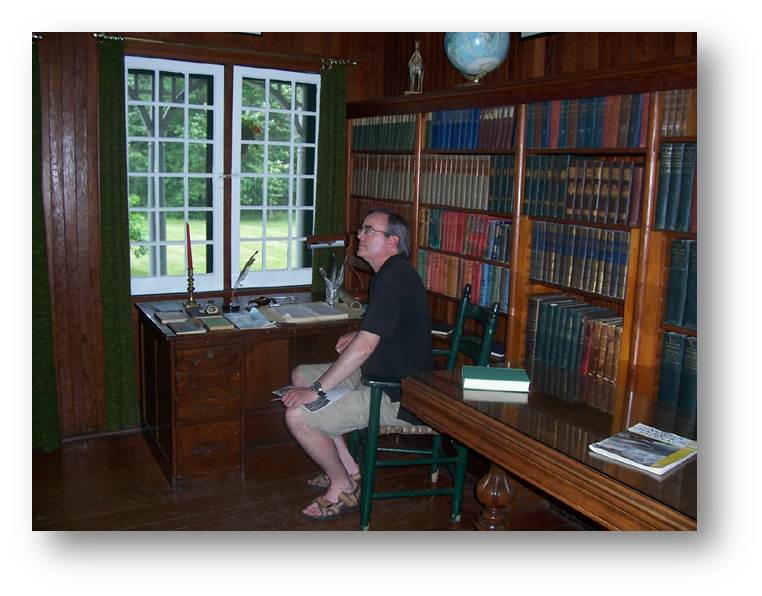
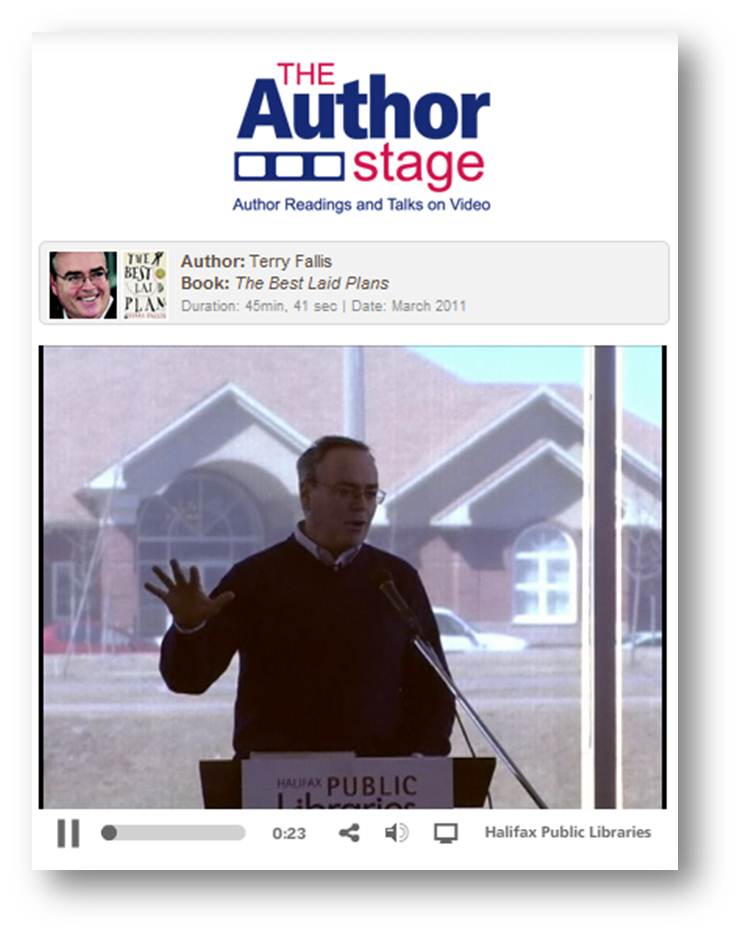



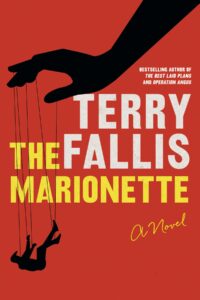


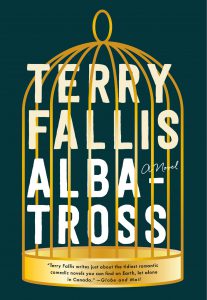

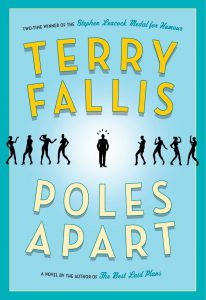
[…] four stars out of five. You can read the review in a new section of this blog aptly called “Novel Reviews.” Thanks again […]
[…] I’ll take it. In the end, mixed reviews are better than no reviews! You’ll find the full review here in the Reviews section: […]
My wife and I loved the book! An awesome slice of Canadian political culture. We laughed often, and loved the heroics.
I long for proportional representation or a non-party system of democracy. Perhaps we could adopt the Nunavut model of democracy… waaay better for the voters!